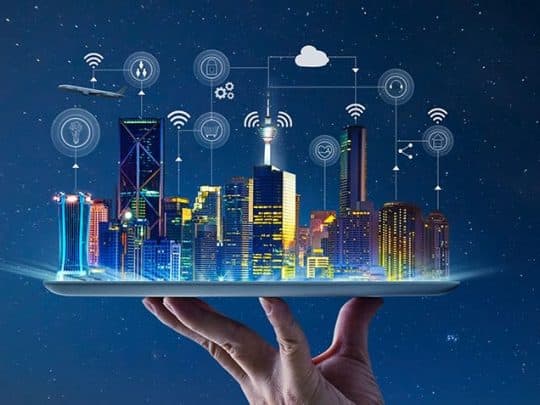
What’s The “New Normal” Post COVID-19?
We all agree that life as we know it won’t be back soon, or maybe ever. The prospects of COVID-19 lingering until at least one vaccine is found and made available on a global scale will transform the way people live, and the way businesses operate.
The crisis may have confused most of us, but it also gave rise to opportunities for sectors to emerge or expand, while others to disappear. There is a new standard of life for individuals, businesses, and other industries that are being re-written as the economy tries to re-open after the pandemic. We’ve seen a transformation in these past few months as COVID-19 impacted every part of our work and life. We work with our customers every day to help them. Most businesses are switching remotely, from communication and sales and customer service to cloud technology and security.
As businesses are facing one of the biggest crises ever, what will become of the “new standard” and how will the world react to it?

Switching To The “New Normal” Will Take Time. Travel will generally take a long time to get back to the way it used to be before COVID-19. This will also have an impact on business travel. We’re all going to have to get used to what we call a new normal. We can look at China, where restrictions have just been lifted, for a glimpse of what is to come in other countries. As parts of the country reopen, the public needs to continue to be vigilant in combatting the spread.
As each country reaches the height of the pandemic at a different rate, recovery will also be very uneven and spotty. Many companies are monitoring the temperature of their employees daily, and we should expect similar potential behavior when employees start returning to work around the world. At the moment, the threat of a second wave of infection is also weighing on some countries. The rest of the world is watching, and if this happens, it will be tired of removing restrictions. It’s not hard to imagine a permanent travel ban for people with fever or cough, to avoid contagion of any kind. This would create challenges for the monitoring and enforcement of such prohibitions.

Travelers Will Be More Mindful. It’s what’s been unfolding around the world in the last few months. In this time of uncertainty, it is the travel sector that has been most affected by all border closures, restrictions, and lockdowns. Airlines, cruise operators, and hotels are experiencing the adverse effects of the pandemic. It might be too early to see what travelers are going to do, and in what kind of timeframe. It’s going to be a scenario of waiting and watching. Employees may have been used to make a conference call. Some companies may have adapted much better than expected and have decided to keep some of the changes they have made.
Some people may feel anxious about traveling, depending on their circumstances. Business travel is going to be different, but it’s going to ramp up slowly. The new standard of business travel would be a more informed, thought-out way to travel. In the long run, it would help both workers and employers, leading to a better quality of life for the former and a better return on investment for the latter.

Digital Transformation and Contact Less Economy. Another emerging new standard is the rise in online shopping for almost all our needs. Businesses need to invest in technology to make shopping goods easier online. This, in turn, will help to increase the delivery or logistics sector.
The pandemic has also forced most food services to innovate, transforming themselves into retailers — redirecting their supplies to end-users instead of to their kitchens, as they were not allowed to accept quarantine dining. Sending the menu directly to consumers through online transactions will become much more prevalent as a revenue stream and a way forward for food establishments that may struggle to lure old customers even after lockdowns are lifted. For other companies, the new standard will involve increased dependence on contractors for certain aspects of their operations.
Artificial intelligence and cloud computing will have a significant role in many other changes in the days or months ahead. Companies need to flexible to survive and be always alert to new realities as local and global business environments try to find a foundation in the aftermath of COVID-19. Experts point to two things that companies need to cope with crises — resilience and agility. Many companies will have to develop these core strengths or risk perishing in this or the next emergency.
Schools are rapidly changing the primary way they do their day-to-day tasks. Some of them have become old-fashioned correspondence schools, with the vast majority of interactions happening through written mail. Others have tried to re-create school settings online using digital tools like Zoom. Others are in-between, directing students to online tutoring, practicing, and posting videos.
It will be a long-term test for all of us, global and local, public and private, to get used to the next normal that will be better than what it replaced. It will be crucial for all of us, instead of looking to the past, to rebuild for the future. It is too early in the current crisis, to know how all of us will act in the months and years ahead.
For companies looking to position themselves post COVID-19, Newswire has helped hundreds of customers navigate the marketplace and steady the course with an integrated approach to media and marketing. Speak to a PR Strategist to learn how to prepare for the rebound post-COVID-19 with a Guided Tour, call 1-800-713-7278.











